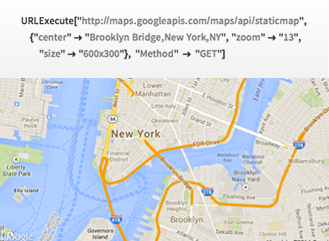JackScott wrote:I read an interesting article via Twitter the other day. Basically demonstrates how badly modern computer systems are designed for "normal" users.
Swift on Security: A story about Jessica.
What could we change in our operating systems to prevent some of the things in this story?
Interesting insight, but how is it possible to protect something like a laptop from everyone but you, and your family?
It needs to stay open enough that everyone can use it easily.
It's like your home. You can install alarms and security but there are still ways to get around it. You'll deter the casual thief looking for oppurtunity but if you have something important or just targeted by someone who knows the tricks they will get around it.
DaemonR wrote:On the contrary, I think the problem is that operators stopped focusing on businesses. People were attracted to it for that very purpose, but over the course of time that all changed. Everything became about the user. They stopped trying to familiarize the users with themselves and instead started familiarizing themselves with the users. It doesn't work that way though. Everyone has a different pace and a different workflow.
Everything in life is about the user, from left handed can openers to flying a jumbo jet. We all want to control something in the easiest way possible. Targeting businesses only meant targeting a certain user, the business owner, to have control over data. It made it simpler than a whole office of people calculating, reading, writing and filing hard copy paper. The typical business owner still has no knowledge of proper security and if they hire the wrong sysadmin then they had even less protection from inside.
DaemonR wrote:One of the major problems technology has today is that we are constantly making things more complicated for the user out there who says "technically, this should be called this and such and such study shows X amount of users want Y."
This is true in part. We as coders and anyone in IT are technical people. We like technical terms so that we know we are all talking about the same thing. I used to get many calls about
my windows isn't working and when I get there to fix it I find the person meant the browser or office, nothing to do with windows itself. I don't understand all the names of the parts in a modern car but I'm still allowed to use one and if it's got to go to a mechanic I say the car's not running, not that this part or that part is broken. The technician/mechanic/doctor needs to be flexible and not expect the customer to know all the details. If they did they wouldn't be coming to you in the first place, they would do something themselves.
DaemonR wrote:The hard fact is that people don't know what they want. They prefer people to make choices for them. That's why Windows was so successful.
I don't agree with this part. I want things to work but that doesn't mean I want them to work your way. Windows was successful because DOS was already successful. People knew the company name and knew their old software would still work (for a few years anyway).
DaemonR wrote:Imho, if you want a good operator, base the entire thing on what the user already knows. Eg. If you're going to give it a folder icon, just call it a f***ing folder. (Sorry, I've been studying technological etymology for several years, and I've grown to hate acronyms, abbreviations, conjunctions, and 'technicalities' with a passion)
Maybe, maybe not. The first lot of home computers weren't really based on anything the average home user, sometimes only school kids, knew or could relate to. If the OS works as the user intends then it doesn't matter if it looks like a toaster or remote controlled TV. Just do the job the user wants and if that means different interfaces for different sectors of the community then that's fine. At work I expect a plain old boring desktop with office apps, email client, some coding tools etc. but when I'm home I might want to forget it's a computer I'm using and use it like a console or a tablet or a ride on lawn mower. Knowing it's compatible with my work machine and that I can play the same game or edit the same document on both machines doesn't mean they need to look or act the same way all the time.




